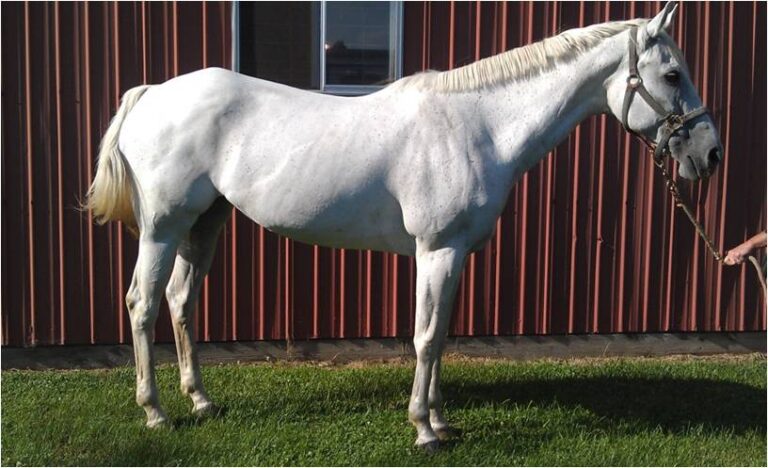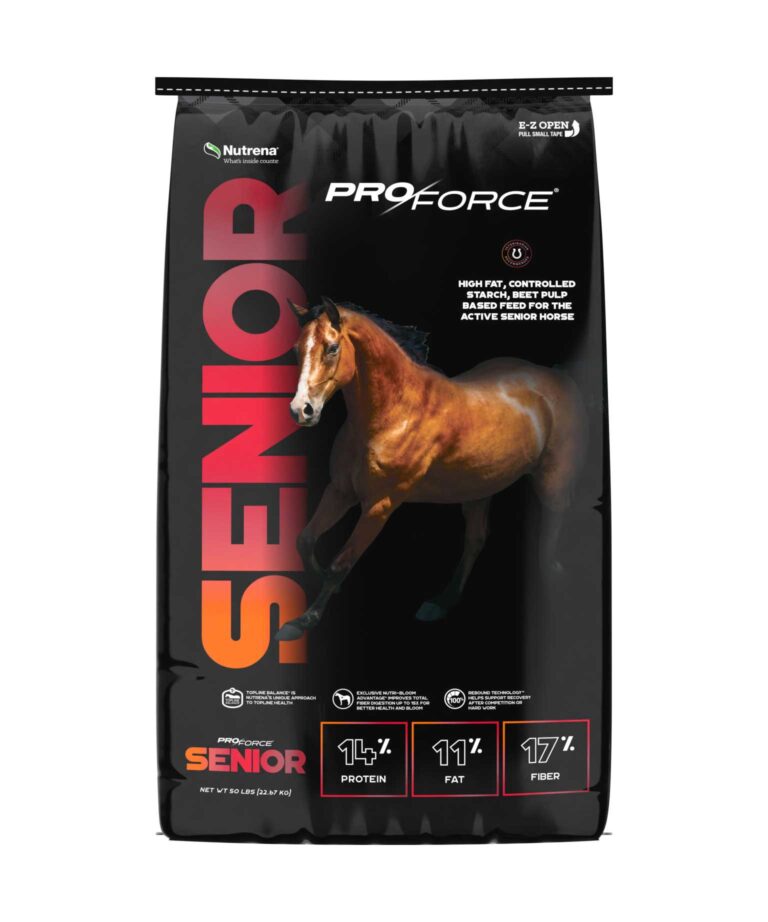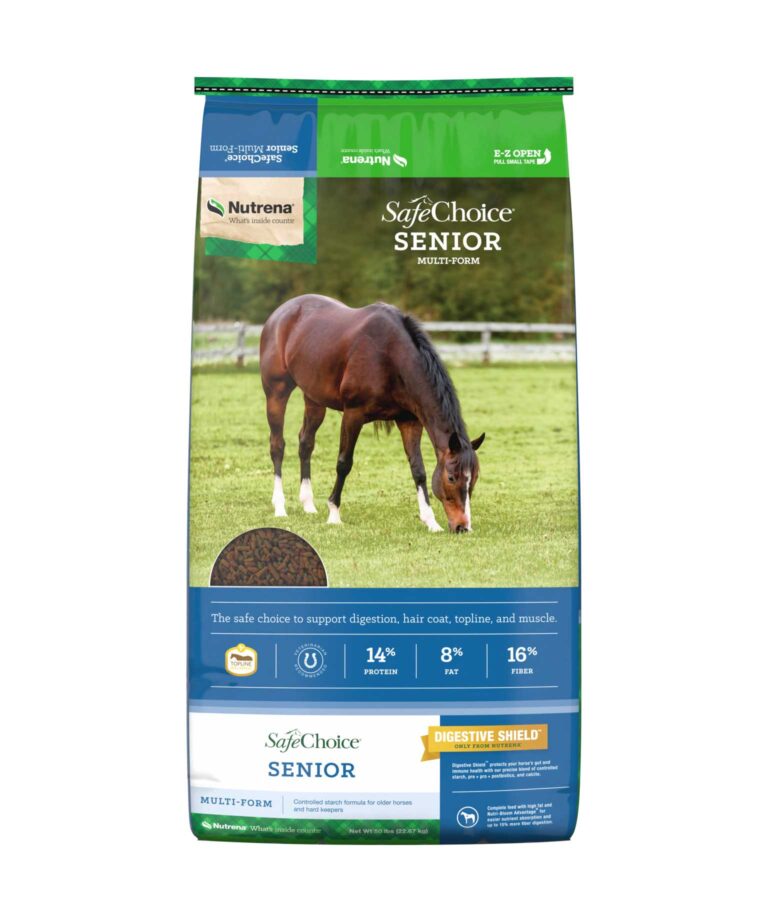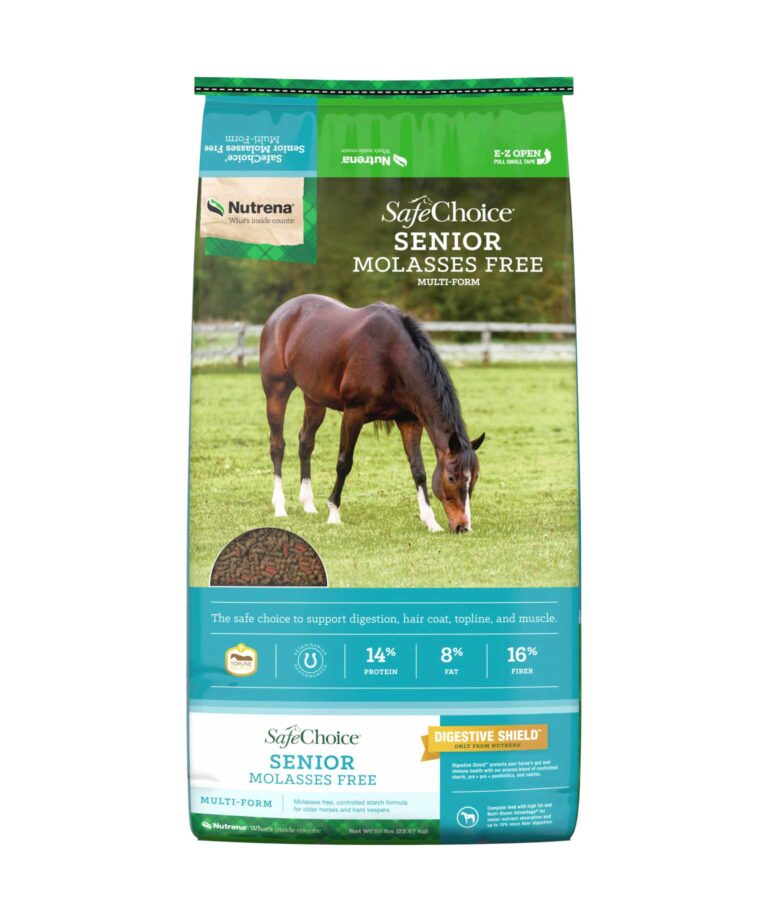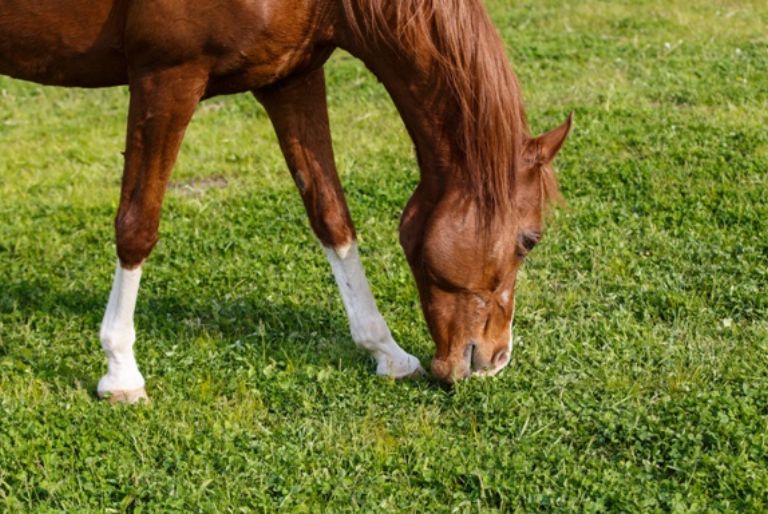When Is It Time for Senior Horse Feed?
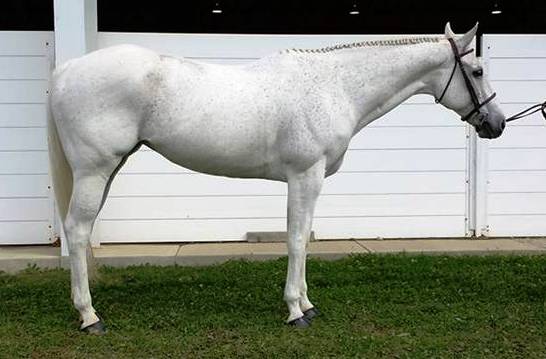
Horse owners are constantly asking “when should I switch my older horse to senior feed?” As nutrition experts we are here to help!
The Growing Population of Senior Horses
It is interesting to note that 30-35% of the current horse populations in the US are “Seniors”. Surveys show 54% of all horse owners own at least 1 “senior” horse. By age definition “senior” horse has been defined as 15+ years of age.
Due to improvements in veterinary care and nutrition, horse routinely live 25-30 years of age, some into their 40’s. It is not uncommon to see horses in late teens and twenties performing at high levels. The key is that we need to treat horses as individuals. So when is a “senior” feed required?
Signs Indicating the Requirement for a Senior Diet:
When your horse can no longer maintain good body condition on a normal hay and grain diet it can be time to consider a senior diet. Other signs include:
- Weight loss
- Poor topline condition
- Hoof quality and hair coat tell a story
- Dropping feed while eating, may be a sign of dental issues
- Loose stools
- Quidding – dropping partially chewed hay out their mouth while eating.
Age-Related Changes in Nutrient Absorption and Utilization
As the horse ages, nutrient absorption and utilization decrease due to breakdown of the digestive system with age. Research has shown that senior horses experience poor nutrient absorption, which occurs particularly with phosphorus, vitamins and protein. Enzyme production may also decrease.
Key Considerations for Choosing a Senior Horse Feed
When we look at a senior diet there are some key points to consider. You want to choose a feed that is:
- Highly digestible to accommodate less efficient digestive system.
- Look for higher and improved protein quality to make up for small intestine inefficiency.
- Does the feed contain higher fiber, and can it be fed as a complete diet, to make up for decreased large intestine efficiency, and possibly replace hay if the horse has dental problems.
- Higher fat helps provide added safe calories.
- Enhanced vitamin and mineral fortification are needed because of loss of digestive efficiency.
- Use of pre- & probiotics in senior feeds can aid in gut health and the digestion of fiber.
- Does the feed have the ability to be served as a mash? Not only are senior feed mashes highly palatable, but they also kelp keep the senior horse hydrated.
The Results of Proper Senior Horse Feed
Below are the results of a recent feed trial. Cleo is an 18 year old Quarter Horse mare. We changed the diet from a maintenance level feed to senior feed. The results after 6 weeks were impressive!

